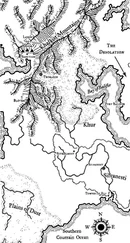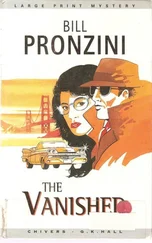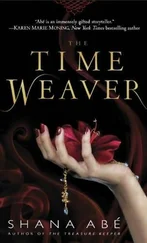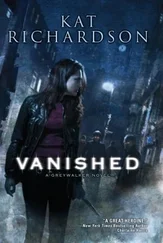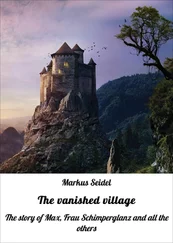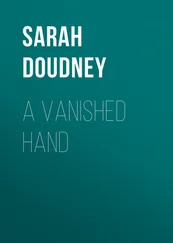A noise behind me.
I turned quickly and looked back across the ticket hall. My phone only reached so far into the darkness. Six feet. Maybe less. Something shifted in the shadows above my eyeline, right up in the corner of the room. I lifted the mobile higher. At the very limit of its glow, grey-blue in the light, I could see what it was. Bats. There were eight of them, hanging from a support beam in the roof. One of them was moving, its wings twitching.
I took a couple of steps back towards the office and, as I did, felt a faint draught at ankle level. Not much, but enough. When I stopped again I could hear it moving past me: a whisper, soft and unrefined, like a child’s voice. Eventually it faded out, as if sensing I was listening, and then I realized something else: it was freezing cold. The whole place – the whole building – was like a refrigerator. Turning the phone in the direction of the draught, I felt goosebumps scatter up my arms.
And then I found two further doors.
One was bricked up.
The other was ajar.
The darkness seemed to close in as I moved towards the open door. In front of me, there was no break in the shadows. No sliver of daylight. In the silence, all that came back was the thump of my heart in my chest, over and over, pounding in my ears.
Two feet short of the door, I smelled something.
Beyond was more darkness, thick and impervious, and when I raised the phone I saw it was another staircase down, this time bending around and out of sight. On either side were black wrought-iron handrails. Glazed tiles were on the walls, some broken and on the steps. The same smell drifted past me and out into the room I was in. A stench of decay.
I started the descent.
Before the bend in the staircase, there was a moment where I felt the same breeze as before, felt it pass my face and cling to me, thick and gluey, as if trying to warn me not to go any further. But I carried on. At the bottom was an old staffroom. It was about forty feet long but narrow. There were no windows. On one side, attached to the wall, was a counter. It was a big slab of wood, topped with small white tiles, but the tiles were mostly broken or on the floor in front. On top were a couple of animal traps, big and rusting, a series of knives and some rope. There was no other furniture. The smell was horrendous; a stench of death and suffering that stuck to the back of my throat.
Yet the room was empty.
Further into the darkness were more tools: a saw propped against the counter, a knife, rolls of duct tape. And something else: specks of blood on the white tiles, dotted all along the counter top like a trail on a map.
Then, in front of me, something shifted.
The phone’s glow didn’t reach the far wall, but something in me – some small voice – said not to go any further. I stood there for a moment, heart thumping in my chest, the smell, almost unbearable now, clawing its way into my nose and mouth and staying there like dust. Then – finally – I stepped forward and, on the edge of the glow, two blobs of light came back. At first I couldn’t see what they were. Then, too late, I realized.
Boots. Black, with steel toecaps and red stitching.
Just like Duncan Pell’s.
He’s in the room with me .
50
He launched himself out of the darkness, hood up, leading with his fists. I was barely ready for him, almost side on, but instead of trying to cut me down, he went past me. My body had been prepared for the impact, ready to absorb the blow. Instead, I felt the dead air move, an arm brush mine, and then he was already on the stairs, heading up into the ticket hall above us.
A second later, I followed.
As I came out of the bend on the stairs, I saw him exit through the metal grille and head up the stairs to the line. I tried to close the gap but he was fast. Ex-army . Fit . At the stairs I slowed. Up ahead, it was a blind turn back on to the line, so I came up on the left-hand side to avoid being hit or surprised. But there was no one waiting.
The line was silent.
I took a couple of steps through the trees to where the old eastbound line met the station house. Nothing now. No sound. No movement. The ground was hard, dried and compact. I moved along it, the platform about five feet above me on the island, glass and dust and brick scattered all over it. Halfway down, I placed both hands on the island and hauled myself up. Next to me, the station creaked in the hot sun. I didn’t move. Just stood there and listened. No sound but the station house, baking in the heat.
Crack.
A sound from the other side.
Glass beneath boots.
I moved quickly around the front, watching where my feet fell, and stopped at the edge of the building. Then I peered around the corner, along the westbound side.
No one on the platform.
No one on the line.
I came out from behind the station house. About two hundred feet further along, the island became a ramp and dropped down to meet the path. Fifty feet beyond that, the trees began to close in, swallowing the old line whole. There was nothing now. No breeze at all. The only thing that came back were my footsteps, moving across the thin layer of glass and dust. As the island dropped down, the two lines merging into a single path, I saw a flash of movement up ahead.
I carried on, my feet returning to the grass of the line, weeds crawling through the cracks in the baked earth, masonry kicked off on to the old track from the island. There was so much of it – chunks of brick, shards of roofing, clumps of tile. One wrongly placed foot and my ankle would snap.
As the trees grew thicker and the shadows longer, there was a subtle change in the atmosphere: the foliage seemed to drop, as if reaching out, and another tunnel emerged, almost from nowhere, like it was part of the trees and grass; all but carved from them. It was as gun-barrel-straight as the last one, but it was even longer, the daylight at its end just a pinprick against a slate-black wall. I walked right up to it, stopping short of its entrance, but the closer I got, the more I started to sense something. Something defective and amiss. Places were shaped and moulded by their history, by the events that had taken place in them, but mostly they were shaped by the people who had passed through them.
I stepped inside and felt wet mud beneath my feet. The further in I got, the more the temperature seemed to drop. For a moment I felt adrift. My eyes hadn’t adjusted. The ground was uneven and shifting under my boots. I slowed slightly and, as I did, I heard something ahead of me, like footsteps softening, getting further away from me. Then there was no noise at all.
I stopped.
‘Duncan?’
My voice echoed along the tunnel and then vanished, as if absorbed by the dark. The daylight at the other end was about the size of a dinner plate, but it was below my eyeline, like I was heading down into the earth, rather than over it. I glanced back over my shoulder to where I’d come in: the entrance was about forty yards back, a circle full of trees, and hazy in the distance was the island and station house. I thought briefly about backtracking, about returning to the sunlight – because even after being inside the tunnel for thirty seconds, I could barely see anything; maybe ten feet in either direction.
Then another sound from in front of me.
I slowly stepped back, placing my foot as carefully as I could, and felt the heel of my boot disappear into soft mud. There was a gentle sucking sound, barely any noise at all, and yet – in the silence – it was like a scream. Suddenly, there was movement in front of me. As I stepped back again, caught mid-stride, he came out of the darkness, almost ripped from it, and – before I had a chance to react – I was being slammed against the ground, wind fizzing from my body, white spots flashing in front of my eyes.
Читать дальше


